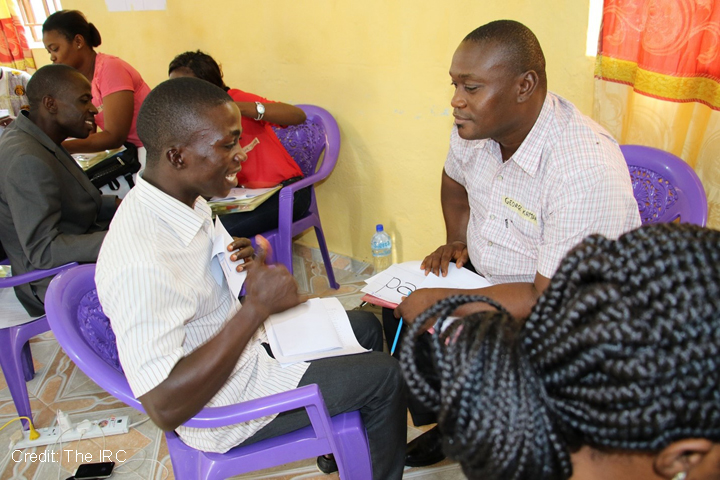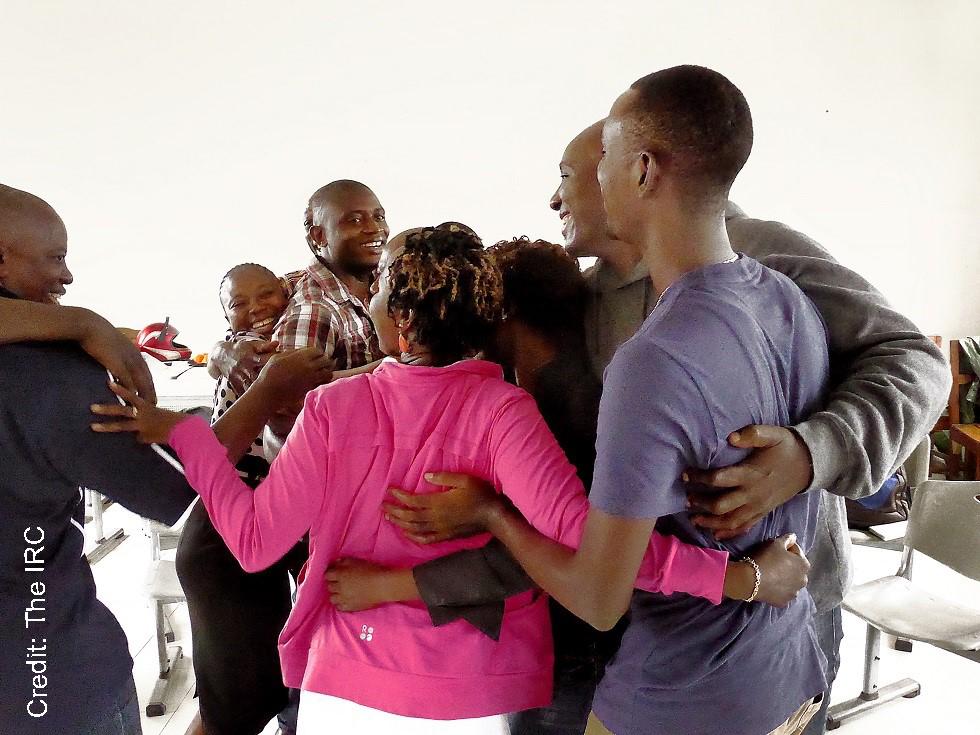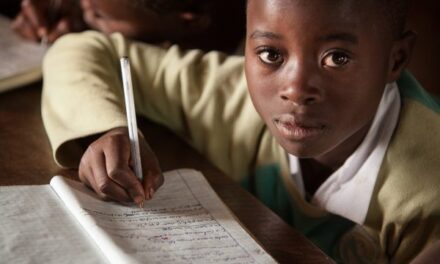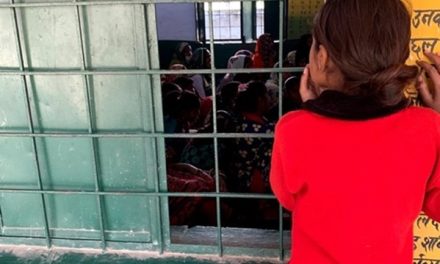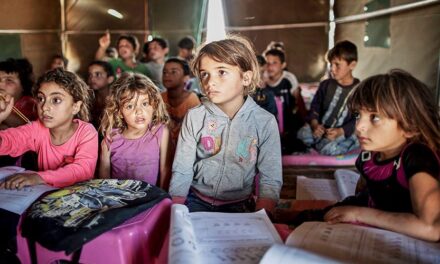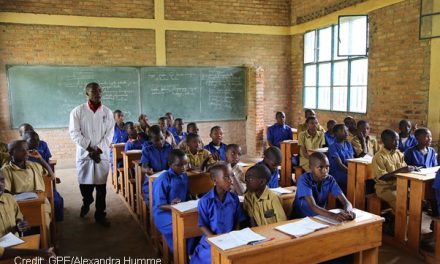This blog was written by Dr Lindsay Brown, NYU-Global TIES for Children in the Steinhardt Institute of Human Development and Social Change. Lindsay primarily investigates how to support teachers in areas of conflict and crisis with a focus on flexible and scalable teacher professional development strategies. She works mainly in the Middle East and West Africa.
Few of us were prepared to take on the role of teacher in the wake of COVID-19 school closures – one we often take for granted. Indeed, if this past year has taught us anything, it should be the value of student contact with a teacher at school. Research confirms that teachers are the most important school-based factor in student learning, and their effects can be detected well into adulthood. But while we expect teachers to don the hats of social worker, psychologist, and mentor, among others, we collectively do little to support them in their work. This is especially true in developing countries, where teachers are often embedded in and products of a struggling educational system that cannot or does not adequately support them. As millions of children return to schools in the wake of the COVID-19 pandemic, we have a moral obligation to support the well-being of teachers and, by extension, a healthier classroom culture. An investment in social-emotional learning (SEL) can help.
Take for example, the West African country of Sierra Leone. As a researcher, I went to Sierra Leone to gain insight into methods of reducing the negative effects of environmental stressors on the classroom through the research practice partnership of NYU Global TIES and the International Rescue Committee. Sierra Leone may boast a tropical climate with lush, green hillsides and white sandy beaches, but the country has also been hit hard by a series of crises in recent history: an 11-year Civil War, a catastrophic outbreak of Ebola, and numerous natural disasters, all of which have taken their toll on the mental health of teachers and students alike. Our partnership primarily investigates whether and how students may benefit from the introduction of short, play-based SEL activities in the classroom, but a surprising finding emerged as the research wore on: teachers were reporting managing their own stress by adopting the activities we had trained them to use with students.
Read the 3EA Research Brief: Supporting Teachers in Crisis Contexts: Implementation Research in Sierra Leone.
Through our initiative, funded by Dubai Cares, we trained teachers to implement two sets of SEL activities with students: mindfulness and Brain Games. Mindfulness incorporates stress reduction and meditation techniques, and Brain Games helps children learn and practice skills like how to listen carefully, use self-control, and follow directions through play. Years of research from high-income contexts has demonstrated that SEL in general can lead to long-term improvements in students’ well-being and academic performance; these specific SEL skills have been linked to improved classroom behavior, an increased ability to manage stress and depression, and better student attitudes. We weren’t sure whether these benefits would extend to a low-income, protracted crisis context like Sierra Leone – where rigorous evidence of its effectiveness is exceedingly rare – but we were pleased when teachers began reporting that they and students liked doing the activities. Some teachers even reported increased student enrolment and attendance as a result of the games.
It’s not hard to understand why teachers might employ these tools for themselves. As student enrolment has increased in countries like Sierra Leone, a shortage of trained teachers and government funds to support them has resulted in up to 60% of teachers working without pay, in the hope that they might someday be granted a spot on the official government payroll. Such “community” teachers contribute to high levels of teacher absenteeism, partly because they must find other methods of supporting themselves and their family. When teachers do make it to school, they might be met with even more challenges – the ones students bring with them from home. Poverty, domestic violence, and the emotional toll of losing a parent or sibling can all contribute to inconsistent student attendance, difficulties concentrating, and disruptive classroom behaviors.
These strategies are not a panacea and are not intended to shift responsibility of absent or failed public policies to individuals. But until such structural changes occur, teachers can use techniques like deep breathing, body awareness, and presence of mind as part of their stress-reduction toolbox. Indeed, teachers reported using mindfulness activities to cope with situations that brought up feelings of stress, sadness, and anger in their personal and professional lives.
Our research is working to demonstrate that supporting teachers’ and students’ social emotional well-being can be feasible and impactful in crisis-affected contexts like Sierra Leone. However, their success ultimately rests on the teachers’ effective implementation: teachers must be well to teach students how to be well. Governmental aid organisations, NGOs, and school systems themselves, must truly invest in teachers’ well-being – inclusive of social-emotional skills and knowledge – and only then can teachers model and impart those skills to their students.

